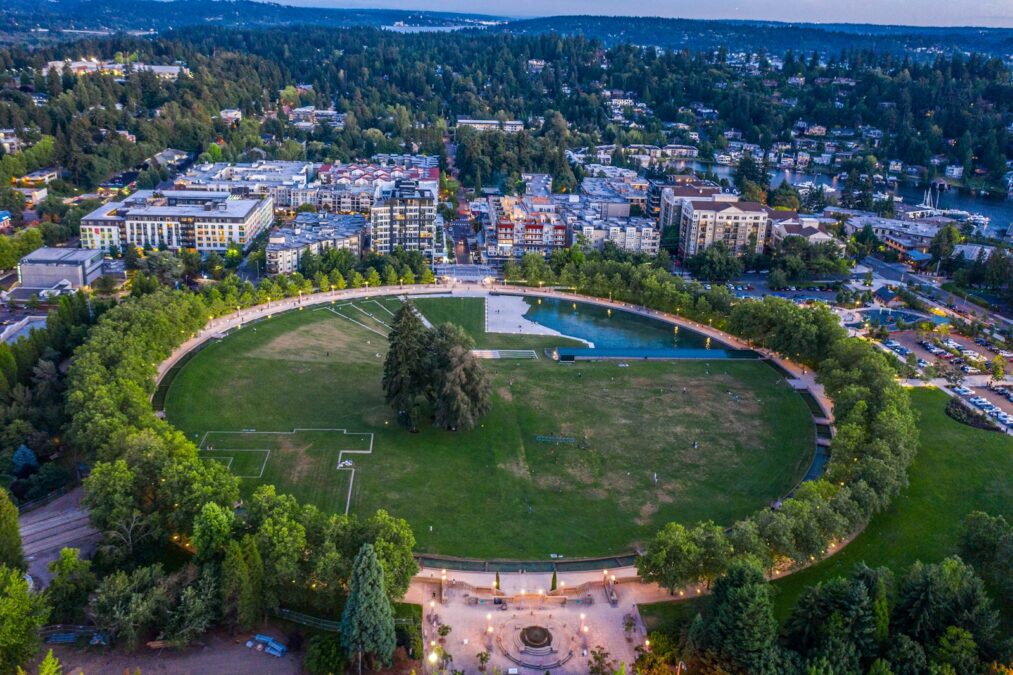How IoT is Making Public Spaces in Cities like Dubai and Riyadh Smarter and More Efficient
Smart Parks in the Middle East is becoming a key focus in urban development strategies across the region. From Dubai to Riyadh, cities are leveraging Internet of Things (IoT) technologies to transform public spaces into dynamic environments that enhance urban living.
Enhancing Urban Landscapes with Smart Technology
The concept of ‘smart parks’ involves embedding IoT devices in public spaces to collect data that helps manage facilities and resources more efficiently. In Dubai, sensors and smart meters monitor environmental conditions, optimizing water and energy use which significantly reduces wastage. This approach not only supports sustainability but also ensures parks are more enjoyable for visitors. Riyadh’s inclusion of smart lighting systems, which use data analytics to adjust the lighting based on the time of day and visitor numbers, enhances safety while minimizing energy consumption.
IoT Integration in Park Management: A Case Study from Saudi Arabia
In Saudi Arabia, the use of IoT in public parks is part of a broader initiative to enhance municipal services. For example, smart bins in Riyadh communicate their status to waste management teams, enabling more efficient trash collection and helping to keep the parks clean. Moreover, interactive digital kiosks provide visitors with information about park amenities, events, and historical facts, improving visitor engagement and satisfaction.
Impact on Community Engagement and Safety
Smart parks also play a crucial role in enhancing community engagement. By offering free Wi-Fi, charging stations, and interactive educational games, they encourage more people to visit and spend time outdoors. Additionally, IoT technologies help improve safety in these public spaces. Surveillance systems that use artificial intelligence to analyze video feeds can detect unusual activities and alert security services instantly, providing a safer environment for families and children to enjoy their leisure time.
Future Trends in Smart Park Developments
Looking forward, the integration of blockchain technology could further revolutionize how services are managed in smart parks. For instance, blockchain could be used to securely manage transactions related to park services, such as event ticketing or equipment rentals, which would increase transparency and reduce fraud risks. Additionally, as generative AI continues to evolve, it could be employed to customize park experiences for visitors by predicting their preferences and suggesting personalized activities.
Executive Leadership and Smart Park Success
Effective leadership is crucial for the successful integration of IoT in public parks. Executive coaching can help leaders develop the skills necessary to oversee complex projects involving multiple stakeholders and technologies. Additionally, management consulting can provide the strategic oversight needed to ensure that IoT solutions align with broader urban planning goals. Ultimately, the success of smart parks depends on skilled management that can handle innovative technologies and dynamic market demands.
Connecting the Dots: IoT and Broader Business Strategies
For businesses, the rise of smart parks presents numerous opportunities. From tech companies specializing in IoT solutions to consulting firms that advise cities on smart infrastructure, the potential for growth is immense. Furthermore, these developments promote a model of innovation that can be replicated in other sectors looking to adopt IoT solutions. By understanding the interconnectedness of these technologies and market needs, companies can better position themselves to benefit from the smart revolution in public parks and beyond.
Smart Resource Management Through IoT
Intelligent resource management is a pivotal benefit of integrating IoT technologies in public parks. In the UAE, for instance, smart irrigation systems use weather forecasts and soil moisture data to optimize watering schedules and reduce water consumption. This not only conserves water—a precious resource in the Middle East—but also ensures that green spaces are lush and inviting year-round. Furthermore, energy consumption can be drastically cut by employing IoT-enabled lighting and maintenance tools that operate only when needed, based on real-time data.
Enhancing Visitor Experience with AI
Generative Artificial Intelligence is set to take the visitor experience in public parks to a new level. Imagine AI that can create real-time augmented reality experiences based on historical and cultural significance of the site, or perhaps even suggest personalized tour paths within the park based on the visitor’s interests. In Dubai, pilot projects using AI to enhance visitor interactions are already being planned. These initiatives aim to merge physical and digital experiences, potentially transforming a simple park visit into an educational, culturally enriching journey.
The Role of Executive Training in Smart Park Development
As smart parks continue to evolve, the need for skilled leadership intensifies. Executive training programs focused on digital transformation and IoT integration are becoming crucial for professionals overseeing these projects. Such training helps leaders not only to understand the technical aspects of smart technologies but also to develop strategies to effectively implement them. This can lead to better managed public spaces that meet the high standards expected by communities in cities like Riyadh and Dubai, where excellence in public service delivery is a priority.
#SmartParks, #IoT, #PublicSpaces, #Innovation, #SaudiArabia, #UAE, #Riyadh, #Dubai, #ChangeManagement, #ExecutiveCoaching, #BusinessSuccess, #ManagementConsulting, #AI, #Blockchain, #Metaverse, #GenerativeAI, #LeadershipDevelopment, #ProjectManagement









